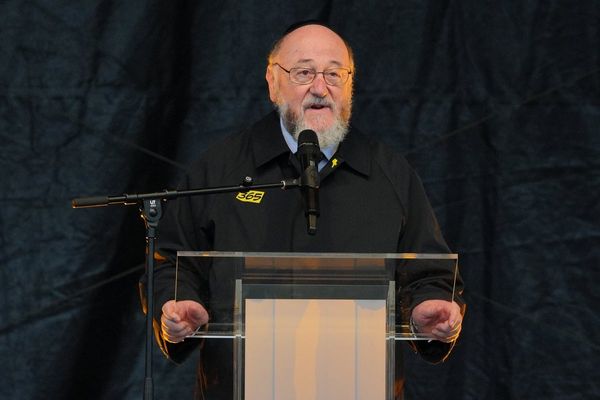
THE UK Government has lodged papers with the Supreme Court arguing that the Scottish Government’s bid to legislate for a second independence referendum should be thrown out.
The papers make clear the Tory government's view that an indyref2 bill would be outside the legislative competence of the Scottish Parliament.
The UK Government is asking the Supreme Court whether a ruling would be "premature" given that the Scottish Government's referendum bill has not yet been submitted to, or passed by, parliament.
The news follows a submission from Scotland’s Lord Advocate, Dorothy Bain, which asked the court to rule on whether the Scottish Parliament had the powers to hold a repeat referendum.
Bain asked the Supreme Court for a ruling after concluding that she did not “have the necessary degree of confidence” that Holyrood could legislate for indyref2 to clear a bill for introduction to the Scottish Parliament.
Legal commentators are split on whether Holyrood can hold a second independence vote without Westminster’s consent because, while referendums are devolved, the Union is reserved.
At the end of June, First Minister Nicola Sturgeon announced that her referendum bill, which aims to legislate for a vote to be held on October 19 2023, had been directly referred to the Supreme Court.
Bain said there was "a genuine issue of law that is unresolved" which required a ruling from the UK's highest court.
However, the Tory government has asked the Supreme Court to consider if it should accept Bain's referral, claiming it "raises important legal questions which cut across the statutory process for establishing the competence of devolved legislation".
A provision of the Scotland Act allows for the Lord Advocate “to refer to the Supreme Court any devolution issue which is not the subject of proceedings”.
A spokesperson for First Minister Nicola Sturgeon said the people of Scotland had already voted clearly in favour of indyref2.
"The Scottish Government fully intends to offer the Scottish people the choice of independence and has set out how it will do so," he said.
“The UK Government’s repeated attempts to block democracy – which now seem to extend to an unwillingness to even make a substantive argument before the Supreme Court – serve only to demonstrate how little confidence it has in its case for the union.
“However, whether the reference is accepted, how long it takes to determine and what judgment is arrived at are all matters for the Court to determine. The reference is now before the Supreme Court, and the Court should be allowed to fulfil its function.”
A UK Government spokesperson said: “We have been clear that now is not the time to be discussing another independence referendum, when people across Scotland want both their governments to be working together on the issues that matter to them and their families.
“However, following the Lord Advocate’s referral of the Scottish Government’s draft Scottish Independence Referendum Bill, the UK Government has today lodged its initial response with the Supreme Court.
“The papers confirm that the Advocate General for Scotland will become a formal party to the case, and ask the Court to consider whether it should accept the Lord Advocate’s referral.”
The current Advocate General for Scotland is Keith Stewart QC, who sits in the House of Lords as Baron Stewart of Dirleton. He took up the post following the resignation of Richard Keen, who stepped down in late 2020 after ministers admitted that provisions in the Tories' Internal Market Bill would breach international law.







